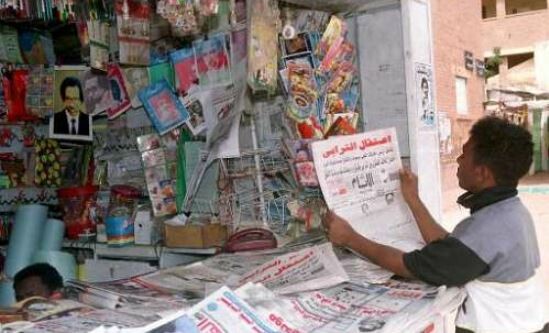Several Sudanese journalists and media houses have reported facing numerous challenges amid the ongoing war between the Sudanese Army and the Rapid Support Forces (RSF) leading to difficulties that have caused the profession to decline and media houses to deteriorate economically, with a large number of practitioners being displaced.
A journalist who preferred anonymity told Radio Tamazuj that these challenges include the destruction of some institutions and journalists abandoning the profession.
A media personality, Mohammed Imam, believes the role of journalists in providing information has been grossly weakened by the continuing war and that this has negatively impacted the role of the media in conveying information and news about events.
“Many media institutions have ceased operations since the beginning of the war due to these complications. At the same time, several journalists have complained about their struggles in these extremely complex conditions,” he states.
Another Sudanese journalist, Loay Abdulrahman, a correspondent for the Saudi Al Ekhbariyyah Channel, says he was subjected to attacks on social media platforms and accused of belonging to terrorist groups.
“The attacks and harassment I faced were due to my coverage and reporting of violations occurring in El Jazeera State which is controlled by the RSF,” he explains.
According to media and human rights reports, Jazeera State in Central Sudan has witnessed widespread violations against its citizens. The RSF recently took control of the state following clashes with the Sudan Armed Forces (SAF) after its rebellion against the state on 15 April 2023.
In the same context, the Sudanese Journalists Union issued a statement condemning the targeting of Loay Abdulrahman.
“The intensive cyber campaign against Loay Abdulrahman aimed at tarnishing his reputation and amounted to character assassination, reaching a high level of immorality by making highly dangerous accusations against him, such as associating him with internationally classified terrorist groups,” the Union’s statement read in part. “This poses a serious threat to Abdulrahman’s safety and security.”
The Union added that the intensified campaign against Abdulrahman aims to deter him from documenting the horrifying human rights violations committed by the RSF against civilians in Jazeera State. Furthermore, the Union condemned the continuous targeting campaigns against journalists since the outbreak of the April war in Sudan, noting that these journalists are working under extremely complex conditions to fulfill their mission towards the local and global public opinion by reporting on the ongoing chaos in the country.
Sudanese journalist Mohamed Alfadil said that there are significant burdens and challenges facing Sudanese journalism amid the ongoing devastating war, with journalists in Sudan facing difficulties in their journalistic work, including violations that endanger their lives.
On the other hand, journalist Mohammed Imam believes that the absence of training, qualification, and awareness regarding the coverage of conflict areas and the lack of attention to safety culture and war coverage hinder journalistic work during the war.
“Possessing sufficient culture and awareness about journalistic coverage in conflict areas allows journalists to fully align with the suffering of the people in line with the professional and ethical standards of journalism,” he enlightened. “Additionally, effective training and qualification in journalism provide an opportunity for a full understanding of humanizing journalistic coverage in conflict areas, maintaining neutrality in conveying events, ensuring accuracy and credibility in information dissemination, and avoiding the trap of spreading rumors.
For his part, another Journalist, Samawual Bashir, stated that Sudanese journalism is facing hardships and challenges amid the ongoing war, with risks due to the armed conflict.
“Several newspapers have ceased publication due to these challenges and risks, along with the cessation of many institutions and the difficulty of event coverage due to the lack of professional safety for journalists,” he stressed.
Media reports indicate that 60 percent of media institutions, including newspapers, radio stations, satellite channels, and websites, have ceased operations. Additionally, media companies and service providers have stopped providing journalistic tools and services.
Before the war, there were more than 200 websites and 30 newspapers, including political, sports, social, and economic newspapers, operating in Sudan.




